People yearn for connections. We crave relationships with the world around us. We search for links to the ancestors who came before us and cultivate relations with the descendants who will keep our beliefs and culture alive. The Texas Folklore Society—the oldest state folklore organization in operation in the United States—was founded on such yearnings almost 115 years ago. Its members continue to gather, stitching long-told tales, practices, and traditions into a patchwork quilt that unites the people of Texas and the Southwest.
From hosting an annual meeting and attending events across the state to publishing a yearly book, Texas Folklore Society (TFS) members keep the nonprofit organization’s mission alive. The society collects, preserves, and shares the practices and customs (the folklore) of the people of Texas and the Southwest.
“Folklore is traditional expressive culture,” explains Secretary-Editor/Executive Director Kristina Downs, Ph.D. “Folklore can include legends, folksongs, pottery, folk dances, festivals, and superstitions. It also includes jokes, slang, cryptids, graffiti, memes, your grandmother’s chili recipe, and gameday traditions. Anything created by the folk, for the folk.”
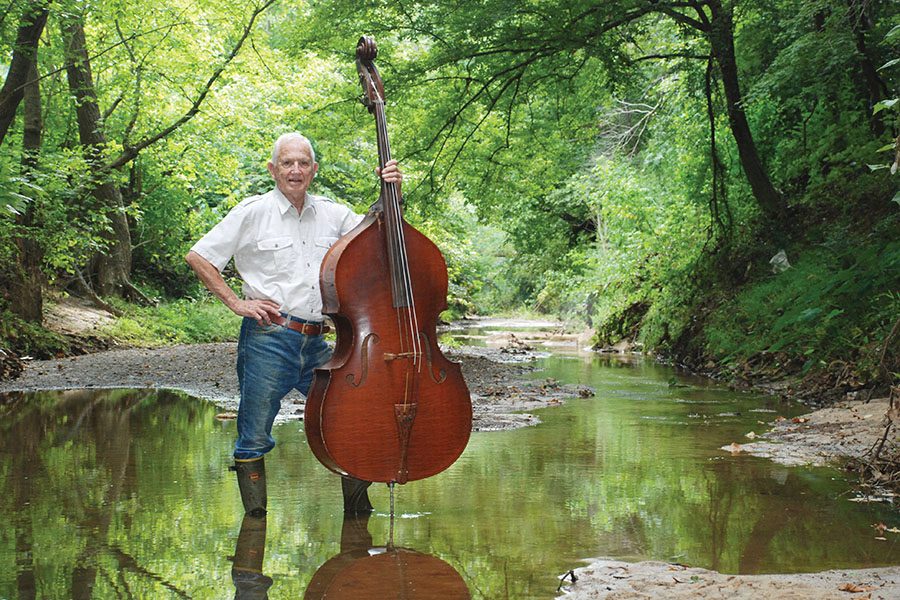
TFS is headquartered on the campus of Tarleton State University in Stephenville, a growing college town about 65 miles southwest of Fort Worth, and has members throughout the Lone Star State and beyond. Members are planning for the future while reminding folks of the organization’s storied history, revived presence, and ongoing preservation efforts. The home office, a pair of suites that includes a folklore library with TFS first editions, also has general folklore publications from around the globe, a Texana Collection, a J. Frank Dobie Collection and more among the stacks.
“The TFS library is a research library, not a lending library,” Downs explains. “We hope that members, students, and our Tarleton family will utilize our holdings for research purposes, or at least come explore our unique, and in some cases rare, collections. It really is impressive.”
If the past is any indication, TFS membership offers good company. John Avery Lomax (1867–1948), pioneering musicologist, folklorist, and Texas A&M educator, and Leonidas Warren Payne (1873–1945), University of Texas (UT) English professor and editor of A Survey of Texas Literature, the first anthology of Texas literature, in 1928 co-founded the society.
“FOLKLORE CAN INCLUDE LEGENDS, FOLKSONGS, POTTERY, FOLK DANCES, FESTIVALS, AND SUPERSTITIONS.”
KRISTINA DOWNS, PH.D., EXECUTIVE DIRECTOR
Like many things linked to TFS, its origin story is quintessentially Texan. After being spurred to organize a state organization by leaders of the American Folklore Society, Lomax and Payne met to devise an organizational plan. The customary 1909 Thanksgiving Day (American) football game and gridiron rivalry between UT and Texas A&M served as the backdrop. TFS was officially chartered in Dallas on December 29 of that year, with Payne serving as president. As it is with members and leaders today, the founders had complementing interests— Payne was a collector of stories and folk speech, while Lomax was a collector of songs.
In the beginning and still today, TFS has a membership base with widely diverse interests, according to Meredith Abarca, 2023–24 TFS President. Some members are academics and scholars. Still, some members are musicians, poets, authors, librarians, farmers, ranchers, students, and businesspeople, to name a few. Some are professionals, some are community folklorists, and some are enthusiasts. They bring their distinct cultures, beliefs, traditions, and experiences to the society through the stories they share, the papers they present, and the songs they sing.
Historically and today, members receive a copy of the organization’s yearly folklore book. The 2022 book, available later this year, was Fiestas in Laredo: Matachines, Quinceañeras, and George Washington’s Birthday, by TFS lifetime member Norma E. Cantú, Ph.D. The 2023 book is an anthology of member-collected stories.
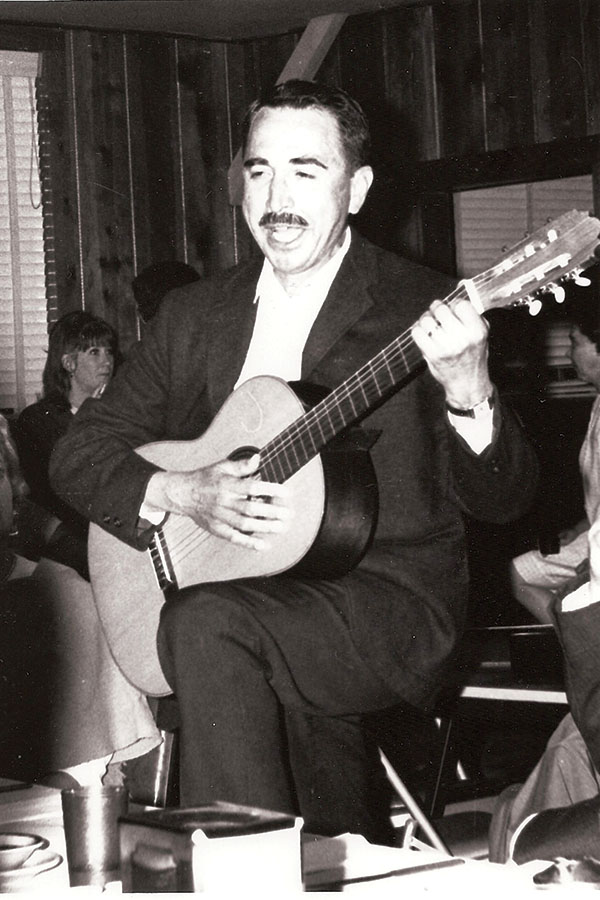
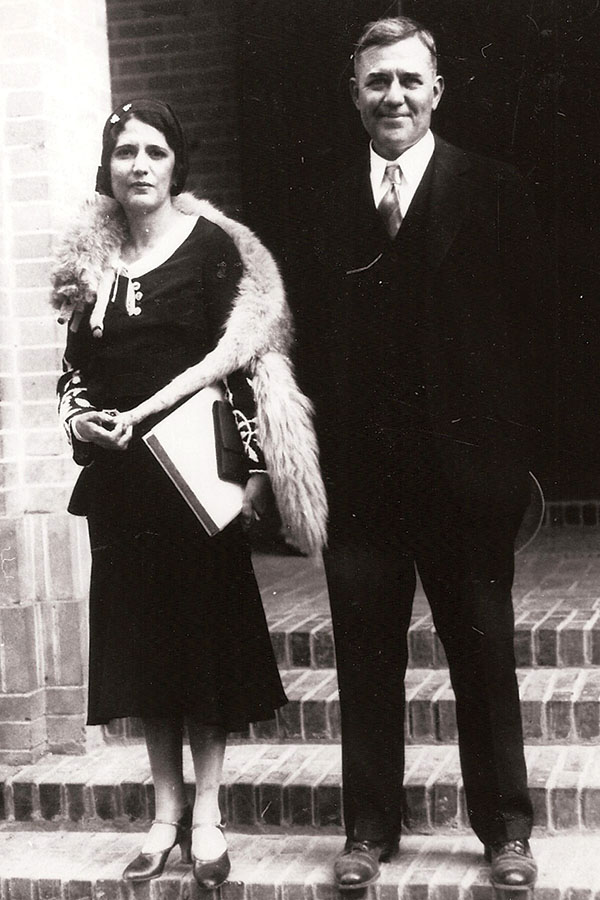
“This year’s publication, Gather ‘Round: Gatherings in Texas and the Southwest, is a collection of pieces that focus on gatherings of all kinds, from personal reflections to scholarly analyses,” says Downs, whose position includes editing TFS publications. “Some authors discuss the place gatherings have in marking the stages of life while others consider gatherings based on special interests. Gatherings range in scale from the Texas State Fair to traditions involving only a handful of people.”
Curating and producing the annual publication and a list of daily duties make the secretary-editor integral to operations, and the role has starred at least a couple of larger-than-life characters, including The Storyteller of the Southwest, J. Frank Dobie (1888–1964), who held the position from 1923–1943. Dobie recognized a good story and quickly became a champion of the annual publication, editing 16 Texas and Mexican border lore volumes. He took up the campaign to “save the longhorns” and recommended their preservation to the state legislature through a resolution issued by TFS. In 1932, the first Paisano—“roadrunner” in border Spanish—was styled for the annual book cover, and the bird became the official TFS mascot, and a nickname for society members.
Dobie revived TFS and “rode herd on it,” carrying the organization from the Great Depression, through the 1936 Texas State Centennial and into World War II.
Another former secretary-editor, Francis Edward “Ab” Abernethy (1925–2015), served from 1971 until 2004. He was a Stephen F. Austin University Distinguished Emeritus Regents Professor of English—Shakespeare, folklore and world literature. Ab served as secretary-editor for over three decades, editing 33 society publications after taking over the role. Ab was charismatic and humorous. His musical talents contributed to the society’s renewed interest in folk songs. As with previous secretary-editors, Ab worked to make folklore open and accessible to everyone.
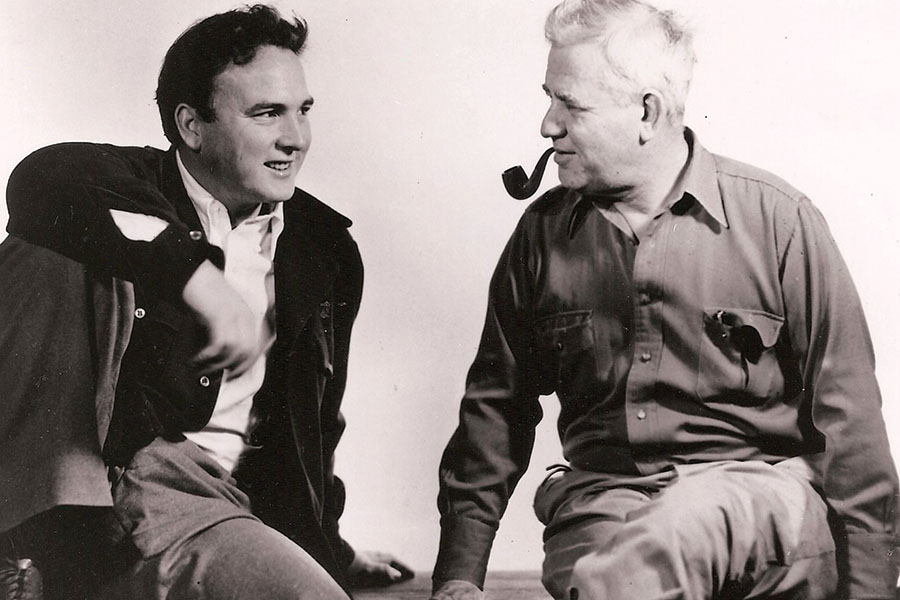
Dobie and Ab were both legends in their respective circles and within the realm of folklore. They’re often spoken of and celebrated by TFS still today. The office of president has also attracted many folklorists that are studied and celebrated in classrooms and by casual readers. A list of more than 100 TFS past presidents includes professional folklorists Américo Paredes, Jovita González, and Sylvia Ann Grider, to name a few, as well as several others and many equally respected community and many preservationists.
As the organization pushes toward a “Regional Wranglers” program with a single member or small group serving as points of contact in their respective areas, TFS has a full outreach schedule into 2024 (see sidebar for more information). Outreach efforts include “Dobie Dichos: Campfires, Chili con Carne, and the Words of J. Frank Dobie,” an event started in 2011 at the suggestion of author William “Bill” Sibley and is staged at the historic Live Oak County Jail in Oakville on the first Friday in November.
Dobie Dichos is a unique literary event celebrating the folklore, literature, and storytelling of Texas and the Southwest. It has been recognized by The New York Times as being one of “the” events to attend in Texas. Authors and storytellers influenced by J. Frank Dobie participate in the event by sharing a story from one of Dobie’s works or presenting a piece inspired by his works.
“Given Dobie’s history with the society, the partnership between TFS and Dobie Dichos is a perfect fit,” Downs says. “Not only does the event allow members to spend time with folks with similar interests, but it’s also another way of honoring J. Frank Dobie’s legacy, which looms large within TFS and across the state.”
The full slate of events planned for the fall and spring paves the way for the folklore society’s 105th Annual Meeting. The event will be at The Westin San Antonio North March 28–30.
Everyone is welcome. The annual meeting always has a hospitable open-door policy for anyone, and everyone interested in learning more about folklore. There will be presentations all day Friday and into Saturday.
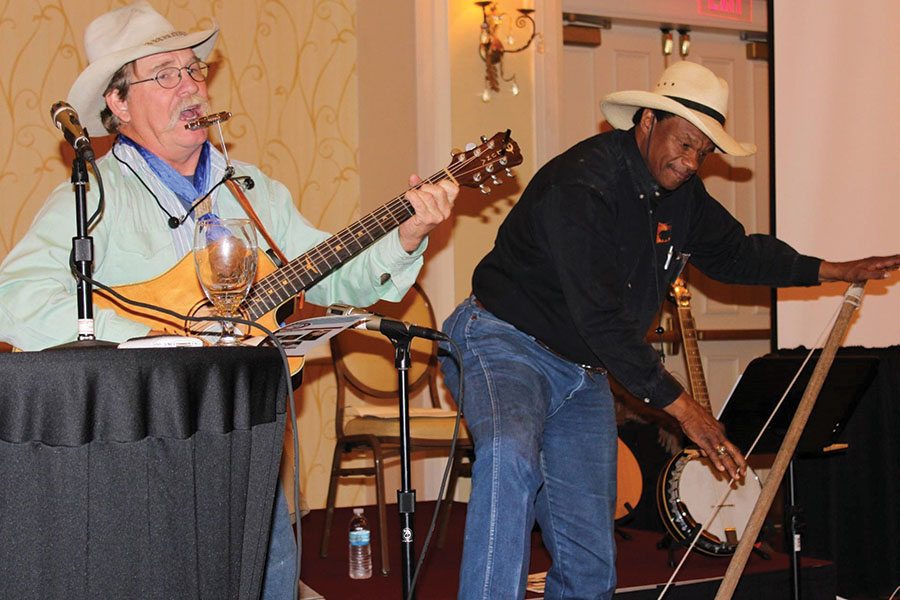
“I am amazed by the things—the research and preservation—we, as a society, accomplish. There is no doubt the presentations will be interesting for everyone who would like to attend,” says Abarca.
The meeting is part conference, part picking party, and “a great family reunion–like when your favorite cousins show up!” There will be public presentations on folklore throughout the day on Friday and Saturday morning. Meanwhile, folks who love music—playing, singing, dancing, or just listening—are invited to the hootenanny, which kicks off around 7:30 p.m. on Thursday and Friday nights and continues until the early morning.
“The annual meeting helps keep us united,” Downs says. “Being immersed in folklore has a way of bringing people together. It’s one of those rare events where our differences truly come together and unite us. We learn a lot about other folks, their cultures and customs, and Paisanos leave each year with a greater connection.”
As the organization continues to grow—at a rate of about 30 percent a year—TFS aims to one day blanket Texas and the Southwest in knowledge, understanding, and acceptance.








